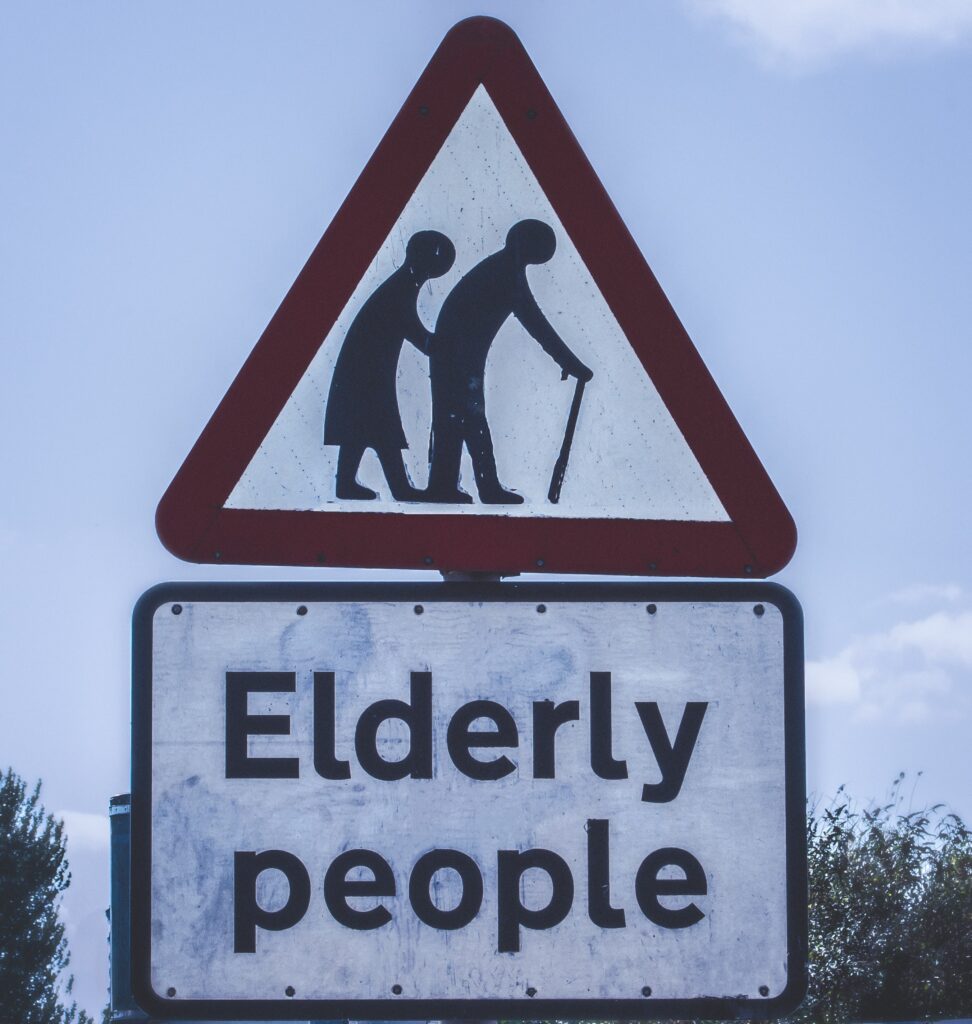November 2022
By Richard Fleming

There is a funny aspect to old age I did not understand until I suddenly found myself old. Not funny ha-ha, but funny strange. Old age is not a uniform period of life. We enter the land of seniority at age 65, but after that point we travel through three very different worlds. For the sake of simplicity – and we seniors benefit from simplification of ideas – I will refer to these stages as Early Old Age, Middle Old Age, and Old Old Age.
For every individual, the time spent in each stage varies. Some move through at a quick pace. Others linger in one stage before traveling on.
Early Old Age is the exciting period of one’s senior years. It generally starts shortly after retirement, when we are freed from the necessity of going to work. If we are fortunate enough to have good health, a reasonable financial situation, and a supportive family and community, Early Old Age can be quite rewarding. Energy and enthusiasm remain high. We can explore new opportunities. Schedules loosen up. A typical day might open with a slow coffee or tea while consuming the news. Those of us lucky enough to be grandparents often spend gratifying time babysitting grandchildren. The day’s errands and chores can be completed at a leisurely pace. Or they can be put off until tomorrow, since tomorrow’s schedule looks pretty wide open. Travel options expand. Opportunities for volunteer work open up. When our adult children mention how grateful they are for an upcoming three-day weekend, we can nod empathetically while silently reveling in our seven-day weekends.
But time marches on. After dwelling for a while in Early Old Age – perhaps just a few years, but hopefully a decade or so – we move into the Middle Old Age period. I feel I’m on the cusp of entering this second phase myself. Hallmarks of this time of life are both physical and mental. Our bodies begin to more clearly assert their limitations. Aches and pains in various and sundry locations become more common than in Early Old Age. Energy levels drop. Motivation flags. Home projects are harder to complete. Especially those we put off when our schedules were wide open in Early Old Age. Folks traveling through the second stage of old age come to realize if they have a doctor’s appointment next week, they don’t have time to clean the garage today. Tomorrow looks pretty dicey too. As for babysitting duties, we still love seeing our grandchildren… but folks in Middle Old Age find caring for rambunctious young humans to be more, shall we say, draining than previously.
Mental acuity diminishes. We forget people’s names more easily. We frequently go into another room for some reason, but after getting there we forget why. To do this once in a day may not be significant. But twice in one day confirms the diagnosis of Middle Old Age. And financial concerns often increase during this phase of senior living.
In Early Old Age, denial can be useful, even healthy. But Middle Old Age brooks no compromise and no negotiation. Aging’s reality sinks in like a 40 pound weight in a quiet pond. Or – resorting again to idea simplification – the Golden Years inevitably transform into the Fool’s Gold Years.
And then. No matter that we eat right and exercise. No matter how nice we are. Old Old Age sooner or later comes to embrace us with its firm hug. In this final stage of our senior years, physical and mental limitations dominate. Our time spent in hospitals and doctors’ offices expands exponentially. Medication trays become an absolute necessity. Our ability to travel, volunteer, spend time with friends, all rapidly taper. Instead of babysitting grandchildren, people living in Old Old Age are often the ones requiring babysitters.
This stage of life can be peaceful or painful. It can be serene or it can be stressful. Commonly, it can be a combination of all. Daily activities become restricted. We spend more time contemplating our legacy and what we will miss out on as our children and grandchildren grow up and grow old. And we start to wistfully look back on our years in Middle Old Age. Back when we could live life much more fully.
It is this prospect of living in Old Old Age that I find truly daunting. I hope when I stand in the doorway to that final phase, I will be able to look forward, breathe calmly, and enter gracefully into that uncertain land with a sense of peace.
But I tell you frankly I’m just not ready. And let me add that I’m not sure how I’ll ever get ready.
Wait. Let me not get ahead of myself. (That is the worst thing one can do while growing old.) As I mentioned before, today I stand on the threshold of Middle Old Age. The land I will be entering presents its own set of challenges. I struggle to accept what these coming middle years will bring.
Thankfully the door which will one day usher me into Old Old Age remains a distant image, closed and locked. But it is not a mirage.
* * *
If you enjoyed this post, please consider subscribing to be notified of future posts. Subscriptions are free.
